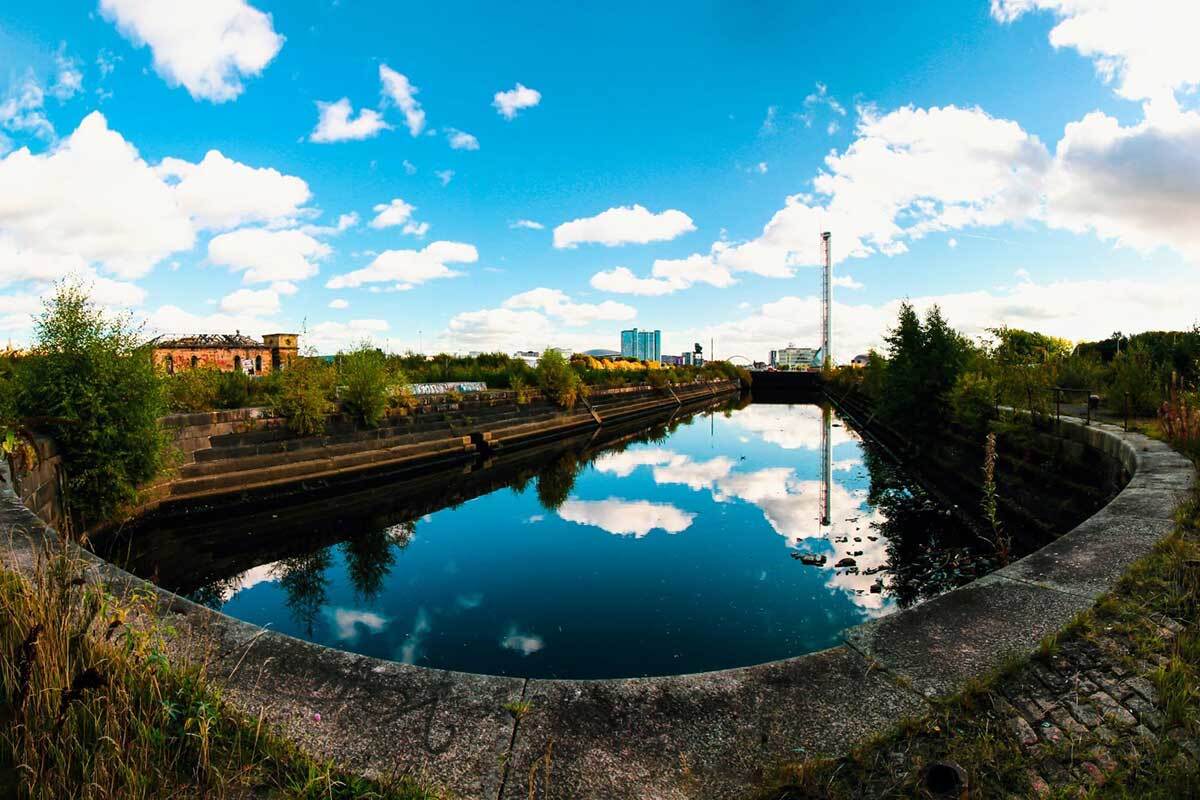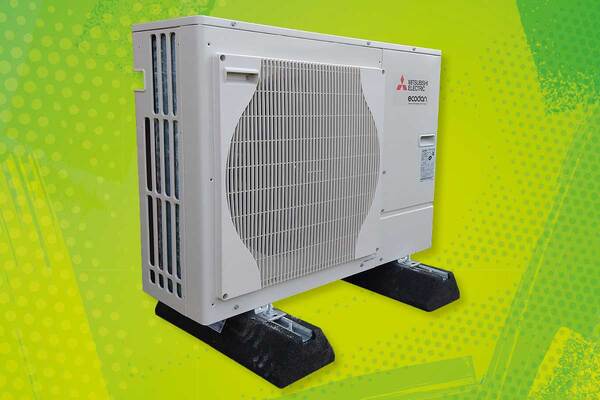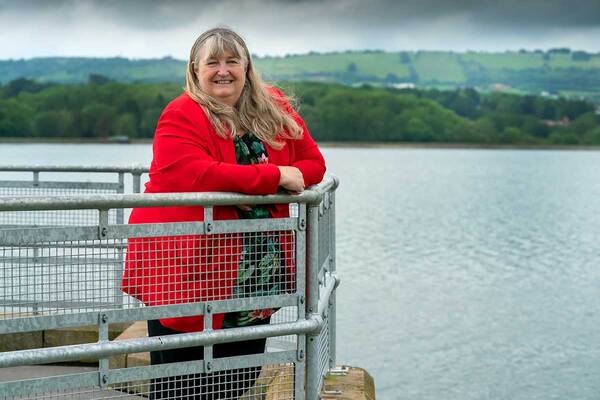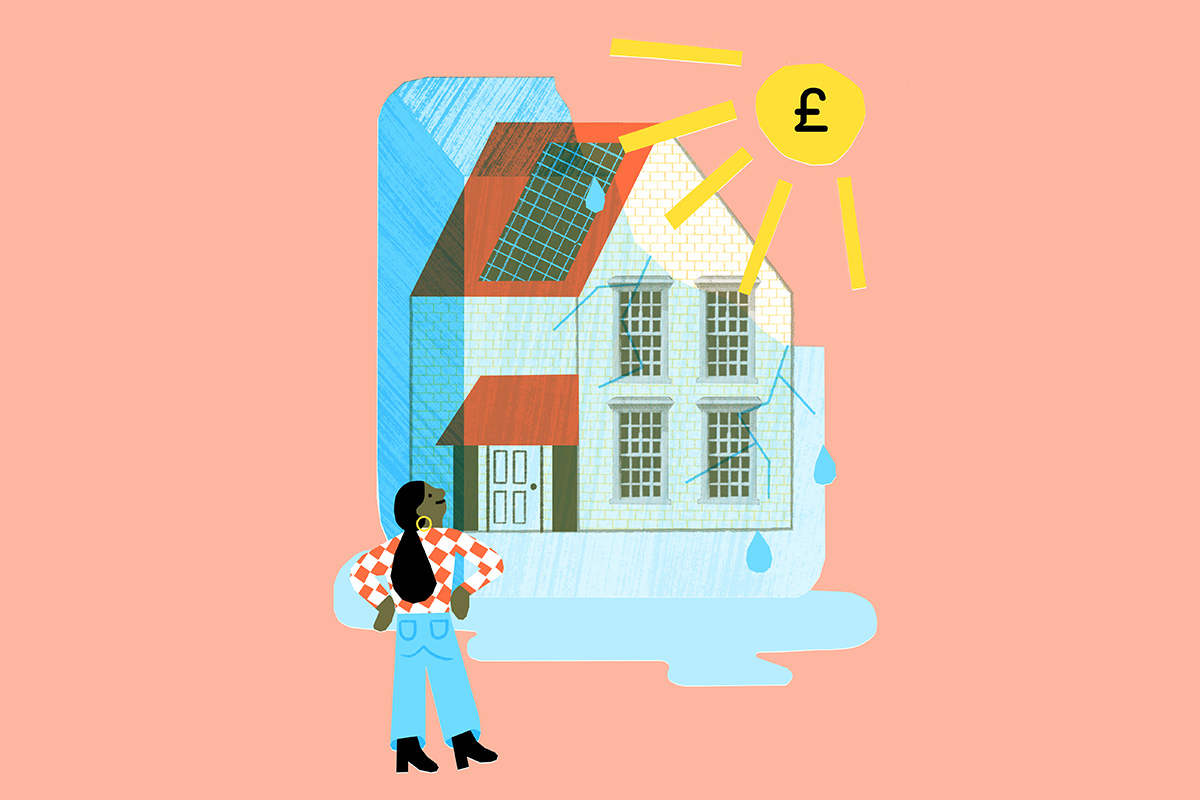Thoughts before the COP26 conference
The switch to low-carbon heating will put in question the jobs of many gas engineers. Duncan Smith says the government should be planning now to ensure they are retrained in low-carbon heating to avoid a huge negative social impact to this inevitable change
From an early age, we understand that some pictures are powerful and can tell a story that words sometimes struggle to. I think this picture (above) is one of those. It’s a picture of contrast. Its story is of old and new. Of hope and hardship but of the potential opportunity that awaits for us if our political leaders are bold enough to seize it.
It’s a story wrapped up in a few pixels about how we must learn lessons from the past to not replicate them on to current and future generations.
Given where we are with climate change and the transition that we will have to make over the coming decade away from an economy powered by fossil fuels, the contrast contained within this picture couldn’t be more relevant.
“I think few of us have fully understood the scale of changes that we’ll have to make within our lives over the coming years, the next decade in particular”
Standing on the south bank of the River Clyde at the edge of the old dry docks in Govan and looking across to the north side where the Exhibition Centre and the Blue and Green Zones will host diplomats and heads of state from more than 140 countries at the Conference of the Parties (COP26) in a little under two weeks.
On the one side of the river lies the derelict remains of Britain’s industrial legacy that once employed most of our parents and grandparents – the past.
On the other side, the frenetic activity that surrounds the climate summit where decisions that will shape our children and grandchildren’s lives will be made – the future.
I think few of us have fully understood the scale of changes that we’ll have to make within our lives over the coming years, the next decade in particular. We’ll need to change the way we heat our homes, feed our families, travel to work and holiday and everything else in between.
We probably need to consume less stuff. And this is at odds with a system and an economic metric in GDP that is all about growth and expansion, at the expense of all else. A metric that ignores the environment and climate change and is ambivalent about our health and well-being. The “cuckoo”, as Kate Raworth brilliantly sums it up.
But regardless of the yardstick, we’ll need to make sure that those employed in the fossil fuel economy are transitioned to a greener, cleaner one. That wasn’t something that was afforded many of those working in these docks and up and down the Clyde in the 1970s and ’80s, and when the gates of the yards shut, many never worked again.
We can’t afford to let that happen again. Not just environmental reasons but for societal reasons, for compassionate reasons. A transition to a cleaner and more sustainable economy and society must put ordinary people and the planet on equal footing.
More than 130,000 registered gas engineers are installing, repairing and maintaining the millions of gas boilers here in the UK. Will we need half of that number before the end of the decade?
Probably not, but we’ll likely need a much greater number of tradespeople working on installing and commissioning low-carbon heating systems and energy efficiency measures than we currently have.
With such a demand for technicians working on retrofit or renewables, what are the incentives out there for companies to upskill, re-skill and retrain their employees when they could be poached by a firm just down the road?
“Targeted intervention by the government in the market now could have a greater impact on the type of retrofit product that will be delivered tomorrow and much broader implications in terms of the economy over the coming decade”
So do we leave it to the individual to organise their own training, or does the government have a role to play in the upskilling and re-skilling of a new and existing workforce?
A workforce that will deliver on the commitments made in the buildings in the background of this story’s photo. To decarbonise our homes, mitigate climate change and eradicate fuel poverty.
That role could be for the government to become directly involved in developing a much higher skilled and resilient construction and retrofit workforce through developing regional training academies or centres of excellence in conjunction with partners across education and the private sector.
Targeted intervention by the government in the market now could have a greater impact on the type of retrofit product that will be delivered tomorrow and much broader implications in terms of the economy over the coming decade. If this photo tells us anything it’s that we must learn the lessons of the past so as not to replicate them in the future.
Duncan Smith, member, Chartered Institute of Housing











